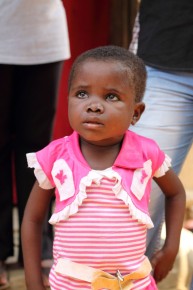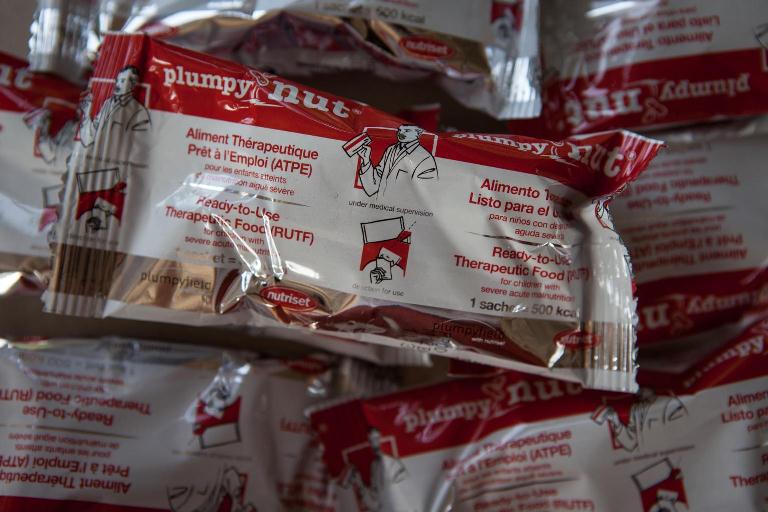
Nsimba is a 3 year old girl living in Masi Manimba, in the Bandundu province of the Democratic Republic of Congo (DRC). With no real livelihood or consistent source of income, her parents struggle to feed her and her 5 brothers and sisters. Hunger is a constant companion. Nsimba is failing to put on weight, and is becoming weaker and lethargic on a calorie and nutrient-poor diet of bitter cassava and plantain. Before long, she will be diagnosed with severe acute malnutrition and her chances of survival will dim.
Sadly, Nsimba’s story is all too common in the DRC, where up to 1 in 10 children under 5 years of age suffer from severe acute malnutrition as a result of a sudden reduction in their diet or severe infection. At the G8 Nutrition for Growth event last year, Prime Minister David Cameron declared under-nutrition a “massive issue for humanity”. Globally, under-nutrition is responsible for almost a third of all deaths in children under 5. Its impact is felt most by the poorest and most vulnerable in society, with damaging effects on long-term physical and mental development.
This is a huge issue in the DRC where little progress has been made on improving food security and the country remains reliant on humanitarian and development interventions to feed hundreds of thousands. Most support has been focussed on the conflict affected east of the country but evidence indicates that the west of the country faces higher levels of both poverty and under-nutrition.

DFID DRC is funding interventions for the prevention and treatment of malnutrition through our health service delivery programme. The programme covers just over 10% of the health zones in the DRC, most of which are situated outside the east of the country. Interventions include campaigns to supply micronutrients such as vitamin A to children under 5, and the promotion of healthy nutrition behaviours such as breast-feeding. We are also about to support a community-based approach to identifying and treating children with severe acute malnutrition. The treatment involves consumption of sachets of Plumpy’Nut, a peanut-based and micronutrient-rich paste. Children like Nsimba can be managed easily at home rather than in a hospital as Plumpy’Nut does not require any refrigeration or clean water, and it can be eaten directly from the sachet. Even the most malnourished child can be brought back to normal health within a matter of weeks.

Unfortunately, Plumpy'Nut will work for only a small fraction of those suffering from under-nutrition. Those who are chronically malnourished require a longer term solution which ensures regular access to a balanced healthy diet. To successfully tackle under-nutrition, we need to understand and address its root causes. This means thinking widely about poverty, improving household food security, strengthening agricultural production, restructuring health and education services, and getting better hygiene and sanitation. The DRC government has stated that under-nutrition will no longer be overlooked and has signed up to the global movement Scaling Up Nutrition, and updated its national nutrition policy. Sectors that in the past have been disconnected - such as agriculture, health, civil society and private sector – will be brought together to focus on improved nutrition. So there is hope for Nsimba and the thousands of children like her across the DRC. But dealing with the structural causes of under-nutrition in the DRC has no single, simple fix. Under-nutrition is a development problem – and requires a comprehensive solution.
Co-author: Rishma Maini, DFID DRC Public Health Specialist.

Recent Comments